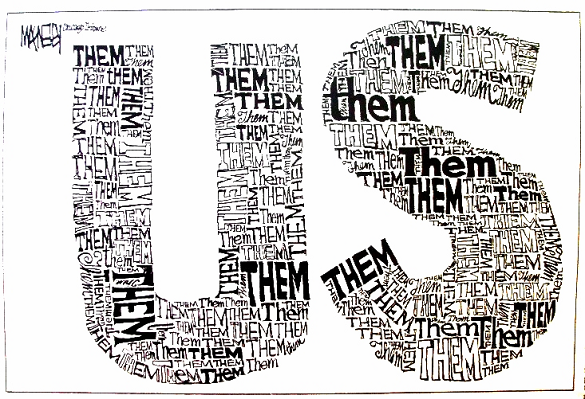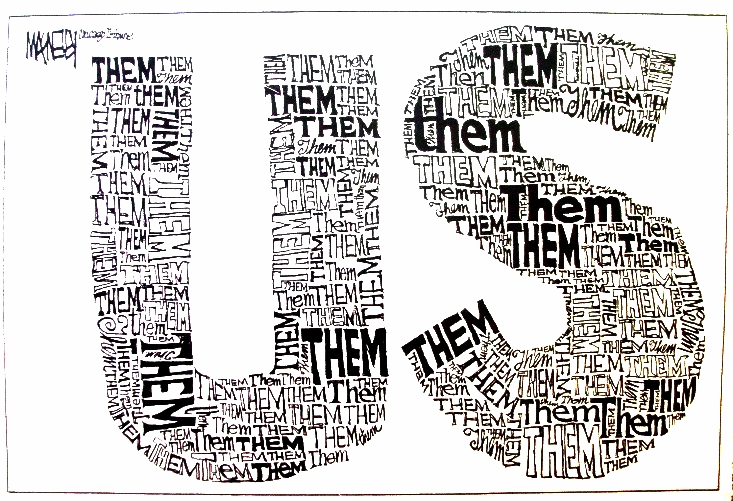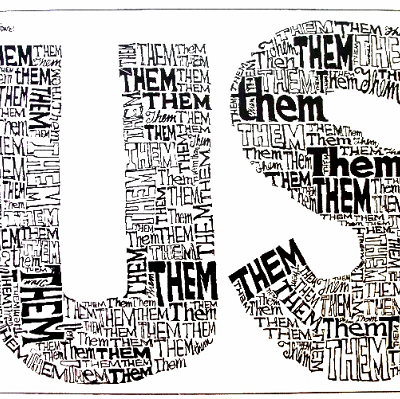Are you frustrated with the divisions that exist within the U.S. and many other countries? I am. It’s frightening to think about how much hate there is in the world right now, even in our own towns and neighborhoods. All sides have their complaints, and the “other” side is “bad.”
I believe most people have good intentions and want good things to happen. We are just dealing with very different narratives. Those narratives are designed to divide people because fear is a strong motivator. Whether in relation to politics, the state of the Earth, war, the economy, homelessness, injustices or inequalities, there are opposing views. Often, the issues seem so big, and the discord is so strong that it feels unsolvable. We may even deaden our hearts and minds to these issues and just carry on the best we can.
Many revert to “othering,” a pattern of exclusion and marginalization based on different identities and beliefs. Anyone and any group can be othered. We have all engaged in othering at one point or another, and many of us may be doing it now in relation to different political perspectives. The problem with othering is it doesn’t help anything. Not one thing. So, even if you think you’re right, it doesn’t matter.
When we are othering, we see the “other” people as separate from us. Oneness is the flip side of separation, and belonging is the flip side of othering. When we believe we are all connected and interdependent, it’s harder to “other.”
According to a research study done by the American Psychological Association in 2019, people who believe in oneness—the idea that everything in the world is connected and interdependent—have greater life satisfaction than those who don’t. A good reason to stop othering!
“Nothing disrupts dehumanization more quickly than inviting someone over, looking into their eyes, hearing their voice, and listening.”
― Sarah Schulman
If, on the other hand, we try to avoid people who don’t align with our beliefs, and we judge them publicly or silently, we are perpetuating the divide. As long as people feel othered, or excluded, they will continue to do the same. Someone must break the pattern!
One example of an effort to bridge the divide, and break the pattern, is The Dialogue Project, founded by Bob Feldman. The Dialogue Project is a research effort to explore what role business can play to help improve civil discourse and reduce polarization. There is a detailed research report on the site, as well as specific actions you can take that are based on Eight Key Principles:
- Commitment starts from the top: listen and be accountable
- Listen to understand, not to win
- Encourage and reward/acknowledge compromise
- Value diverse points-of-view and make space for new ideas
- Build and have empathy
- Rely on facts instead of emotion
- Ensure everyone feels heard
- Start at the root of the problem
There are many articles on how to reduce polarization and they all come down to the same basics: take time to listen, stay open-minded, see the humanity behind the person, remember that we are all truly interconnected, and we will not solve the challenges of the world through fighting.
Unfortunately, it is in the interest of the media and politicians to stir up fear. Fear can get people to watch the news and to vote, so it’s used as a tool. We don’t have to get lured into that fear.
“Only by moving out of fear and hatred can we truly manifest the vision of our founders. The ‘other side’ is not the enemy. Fear and hatred are the enemies.”
― Shellen Lubin
Whatever your beliefs and however you vote, I welcome you into this discussion. The most important truth is that we must solve things together and stop othering each other.
Barbara Fagan-Smith
CEO, ROI
Chief Catalyst, Living ROI








